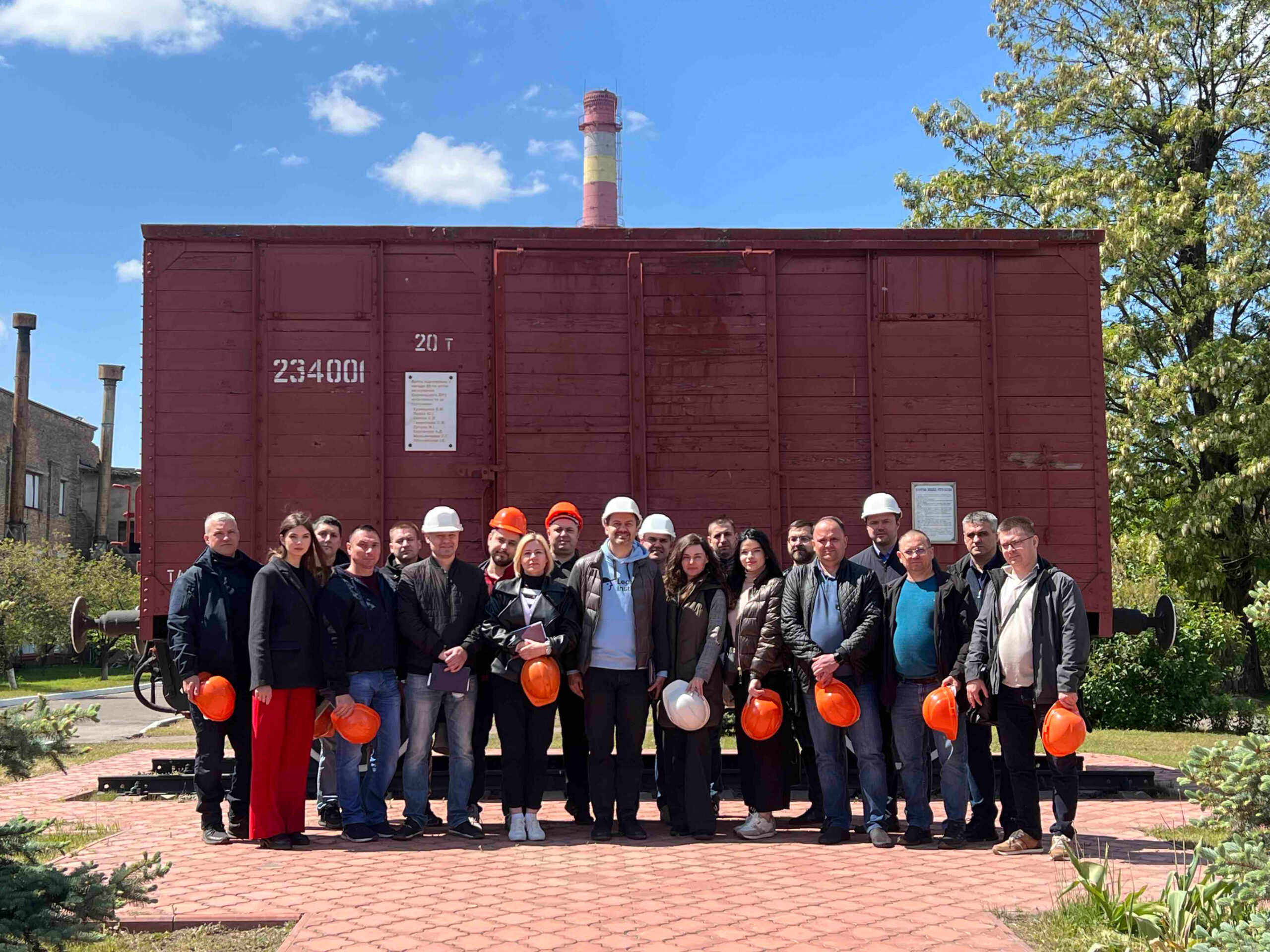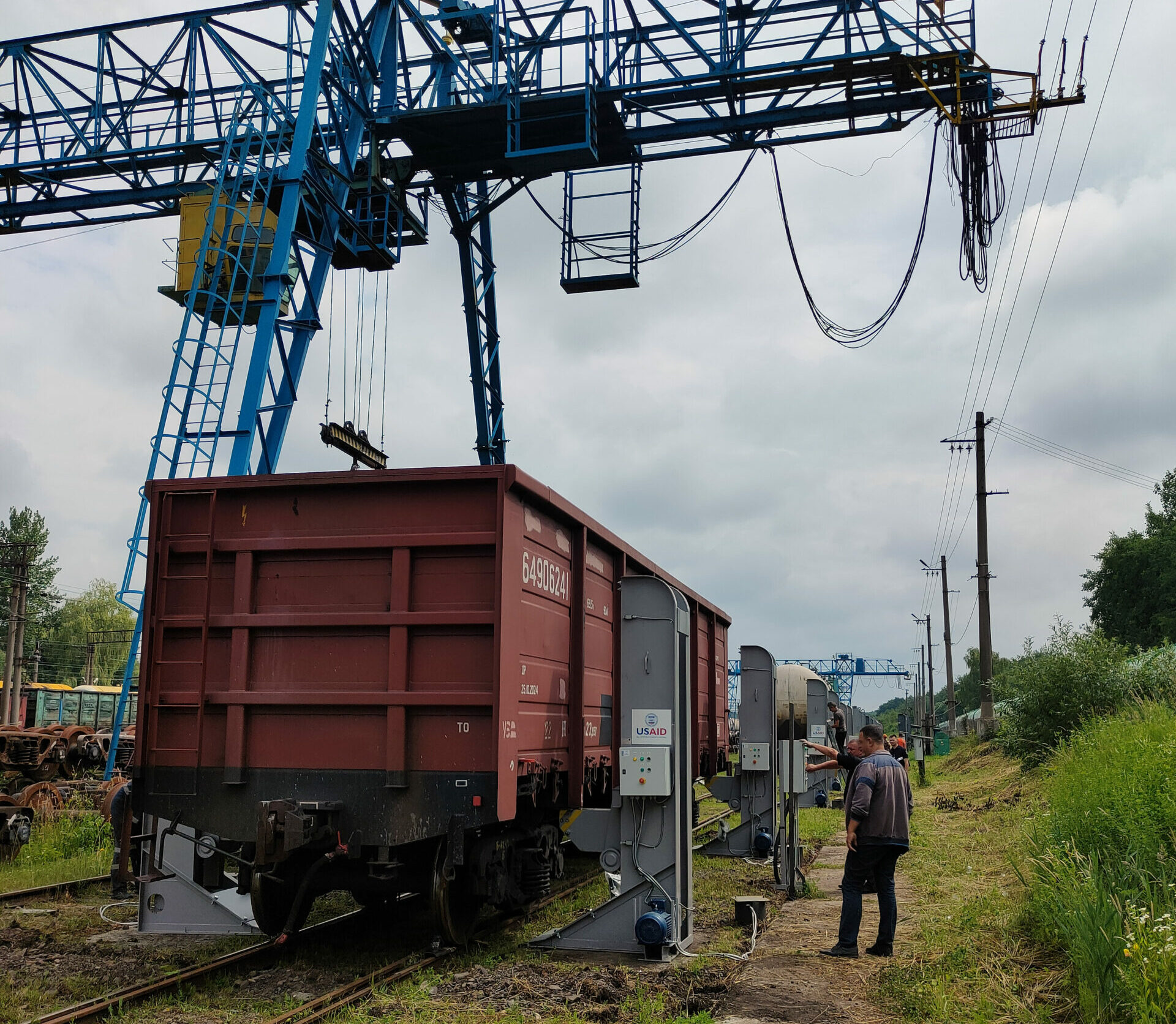USAID, through its Economic Resilience Activity (ERA), delivered a mobile loader with two feed hoppers to Agromino, a Ukrainian grain and oilseed producer operating in the eastern and central regions. Installed in Odesa Oblast, the equipment will double the grain loading efficiency onto cargo ships. This boost in speed will reduce ships’ exposure time at the port, minimizing vulnerability to potential Russian missile strikes and helping maintain critical grain exports through Ukraine’s Black Sea ports.
Agromino expects that the new mobile loader with feed hoppers will enable the company to reduce the time loading grain onto a 22,000-ton cargo ship from 10-12 days to 5 days. From a security standpoint, shorter loading times minimize the exposure of crew, vessel, and cargo to potential Russian missile strikes. Economically, faster loading improves ship turnover and reduces logistics costs. In addition, the new equipment will optimize labor efficiency, addressing labor shortage issues directly. Instead of maintaining a port team of laboratory technicians, weighers, and loading personnel for 12 days, the same work will be completed in less than half the time, with a more intensive and productive use of the labor force.
Moreover, the new equipment will replace a labor-intensive and dangerous loading method. Previously, Agromino relied on ship cranes to load grain, lifting 12-ton buckets and emptying it into the ship’s hold controlled by certified slingers—physically strong, specialized workers trained in cargo strapping for loading operations, all of whom are male and subject to military conscription during wartime.
In 2022, Russia’s missiles heavily damaged a modern elevator in Vovchansk, Kharkiv Oblast, and their soldiers pillaged the crops stored there. Despite Russia’s constant shelling, Agromino maintains its operations in Eastern Ukraine. Also, the company cooperates with more than 80 small and medium-sized farmers from the eastern regions, ensuring the delivery of their grain to the world market.
Background: Assistance to agricultural producers and infrastructure companies is part of the Agriculture Resilience Initiative (AGRI) – Ukraine, implemented by the United States Agency for International Development (USAID). It aims to help Ukraine increase its capacity to produce, store, transport, and export grain.






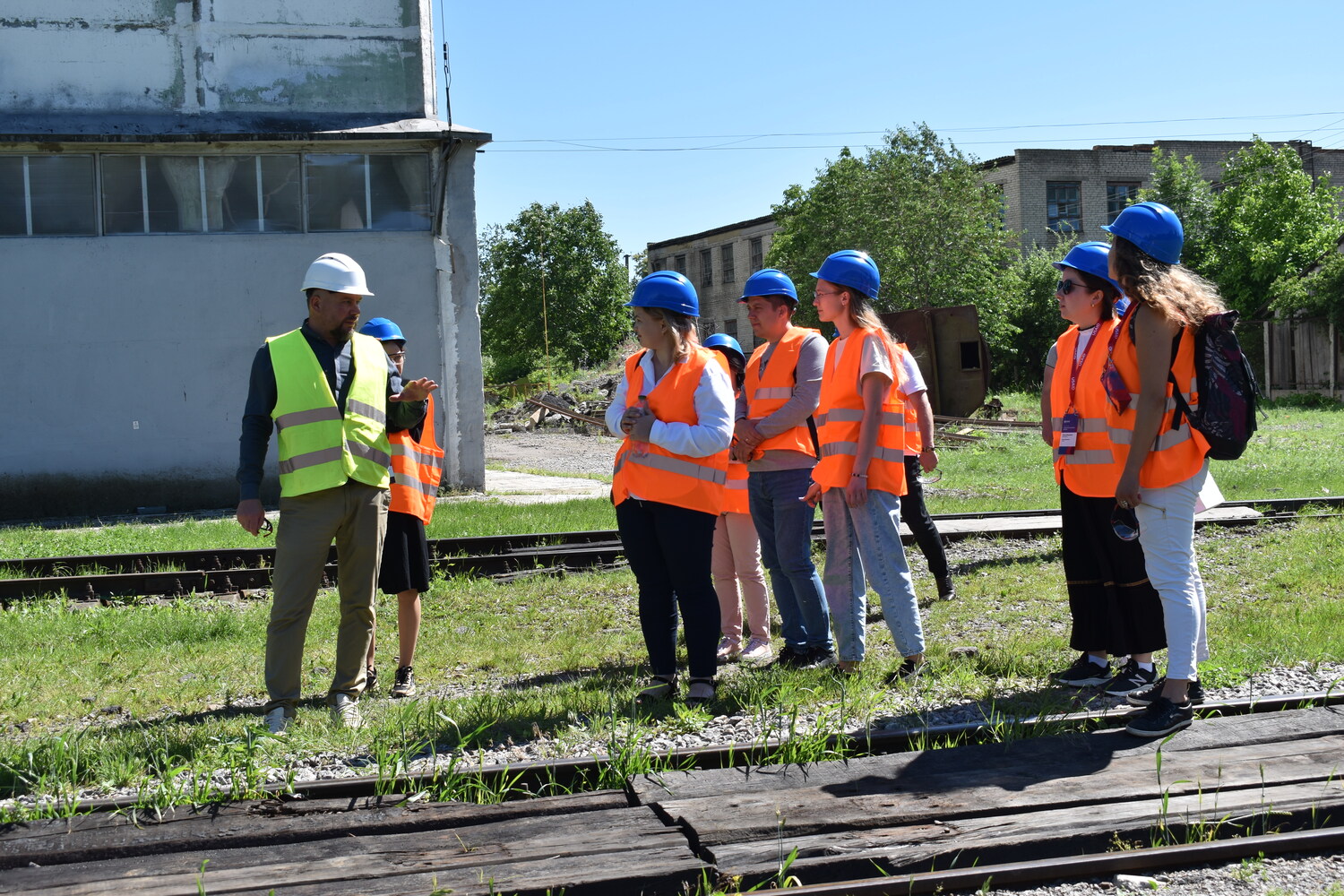
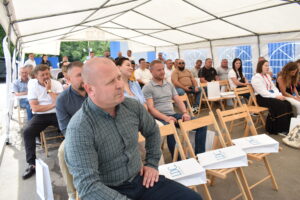
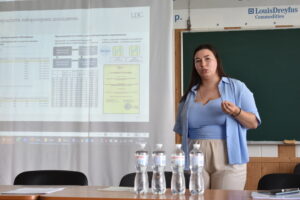
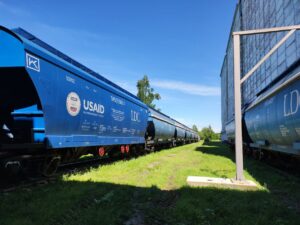 “In May, LDC transported 245,000 tons of grain – 10% by USAID wagons – reducing logistics costs for farmers” says Bohdan Shveda, the Head of the Wholesale Trade Group at LDC Ukraine.
“In May, LDC transported 245,000 tons of grain – 10% by USAID wagons – reducing logistics costs for farmers” says Bohdan Shveda, the Head of the Wholesale Trade Group at LDC Ukraine.

